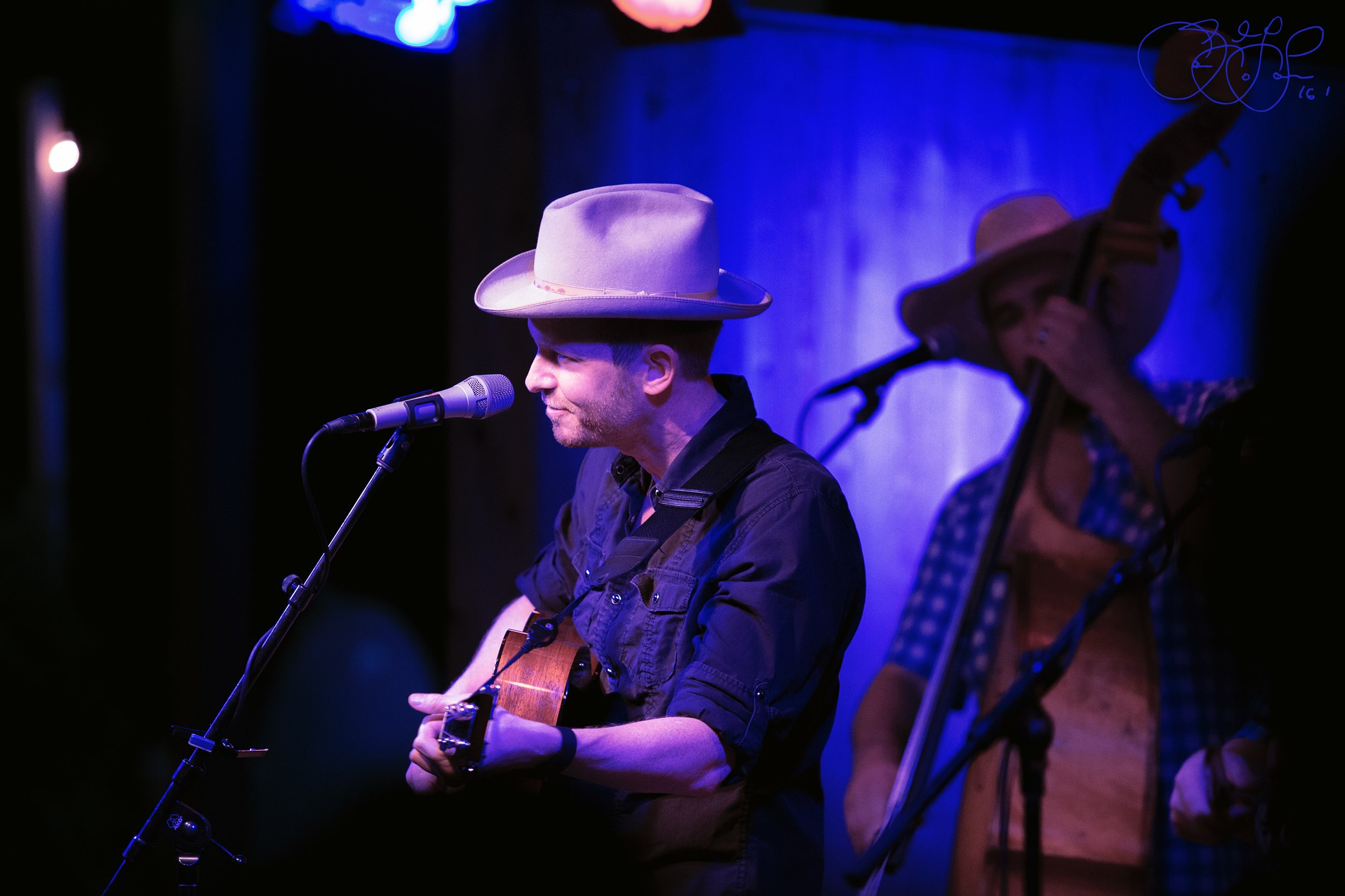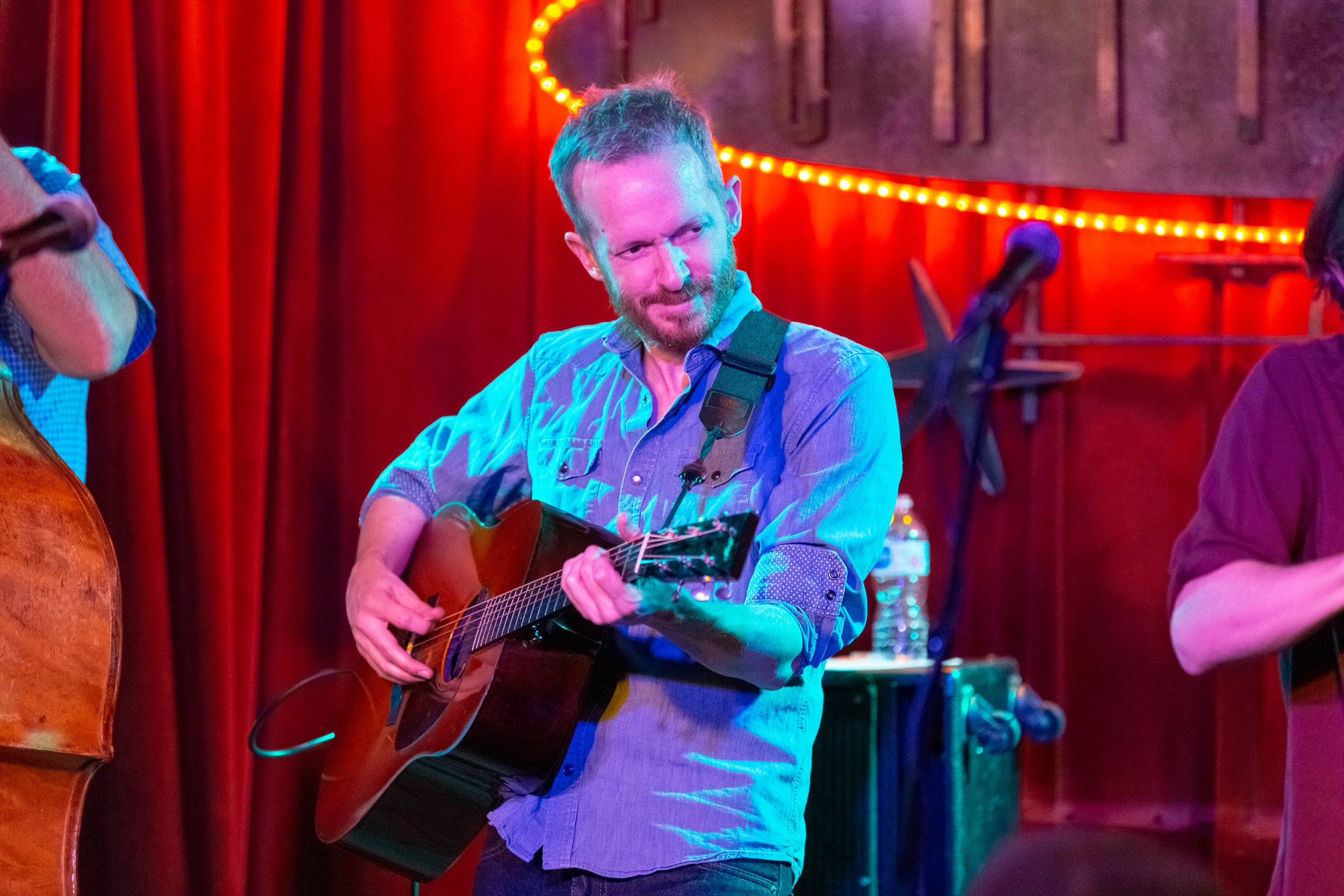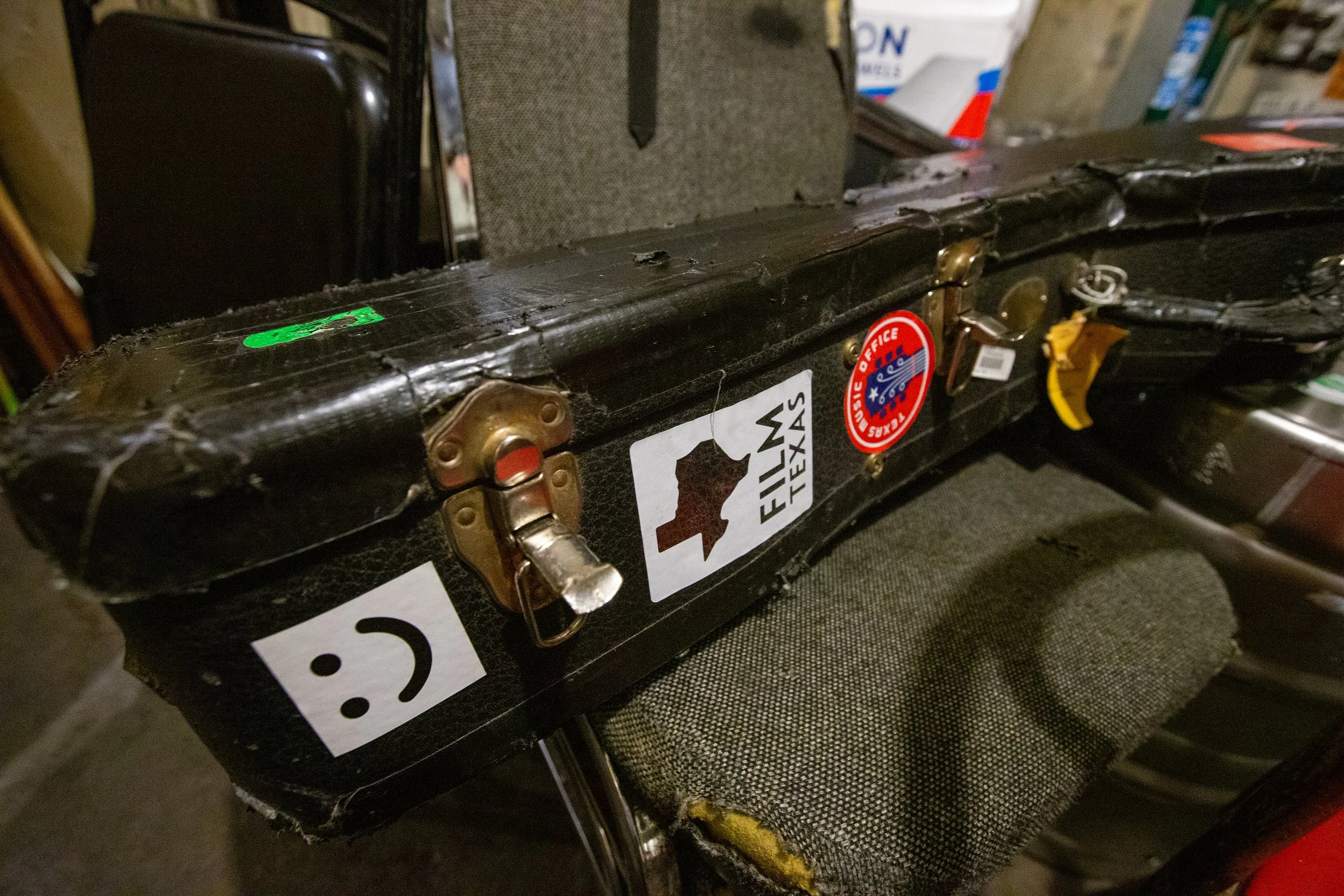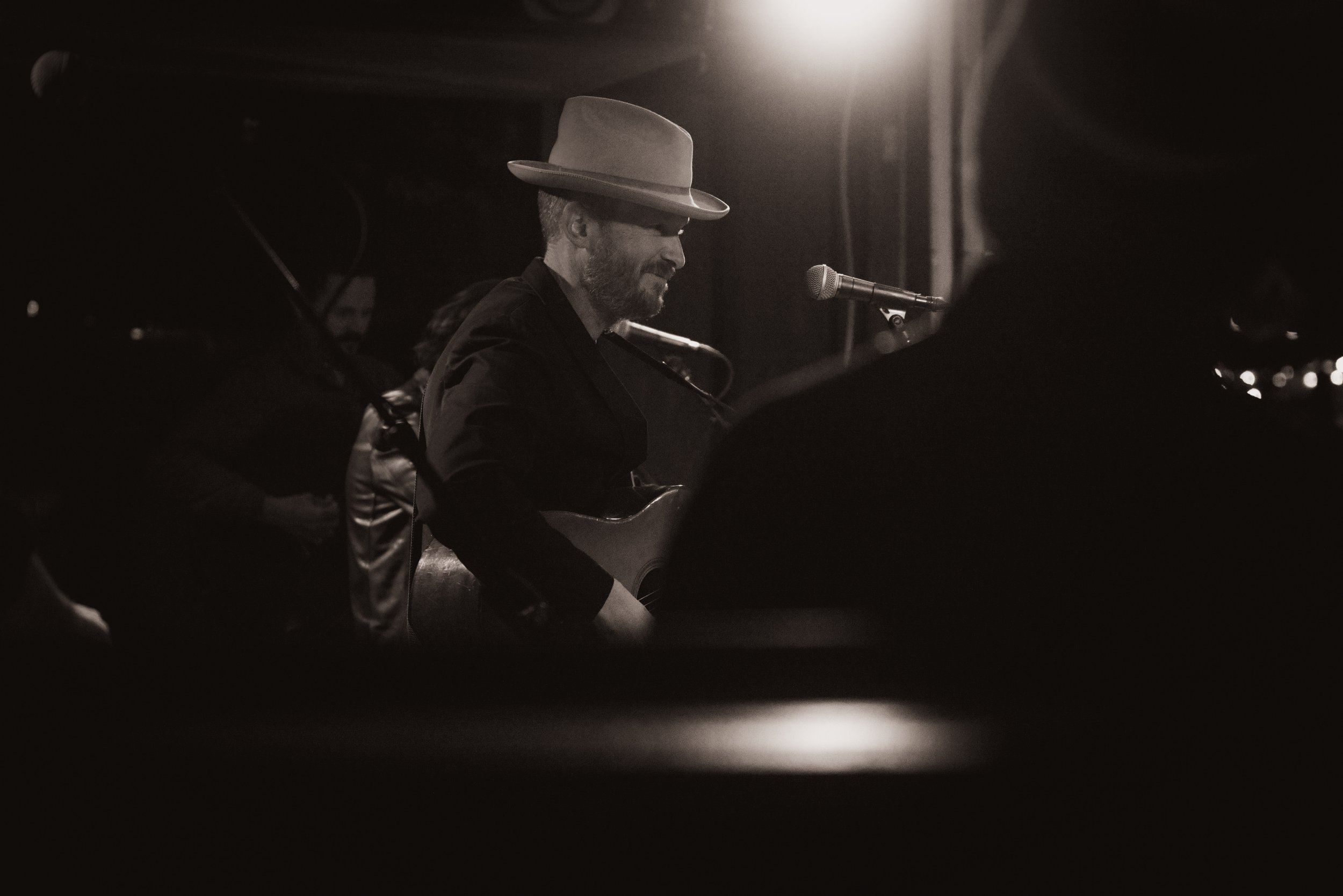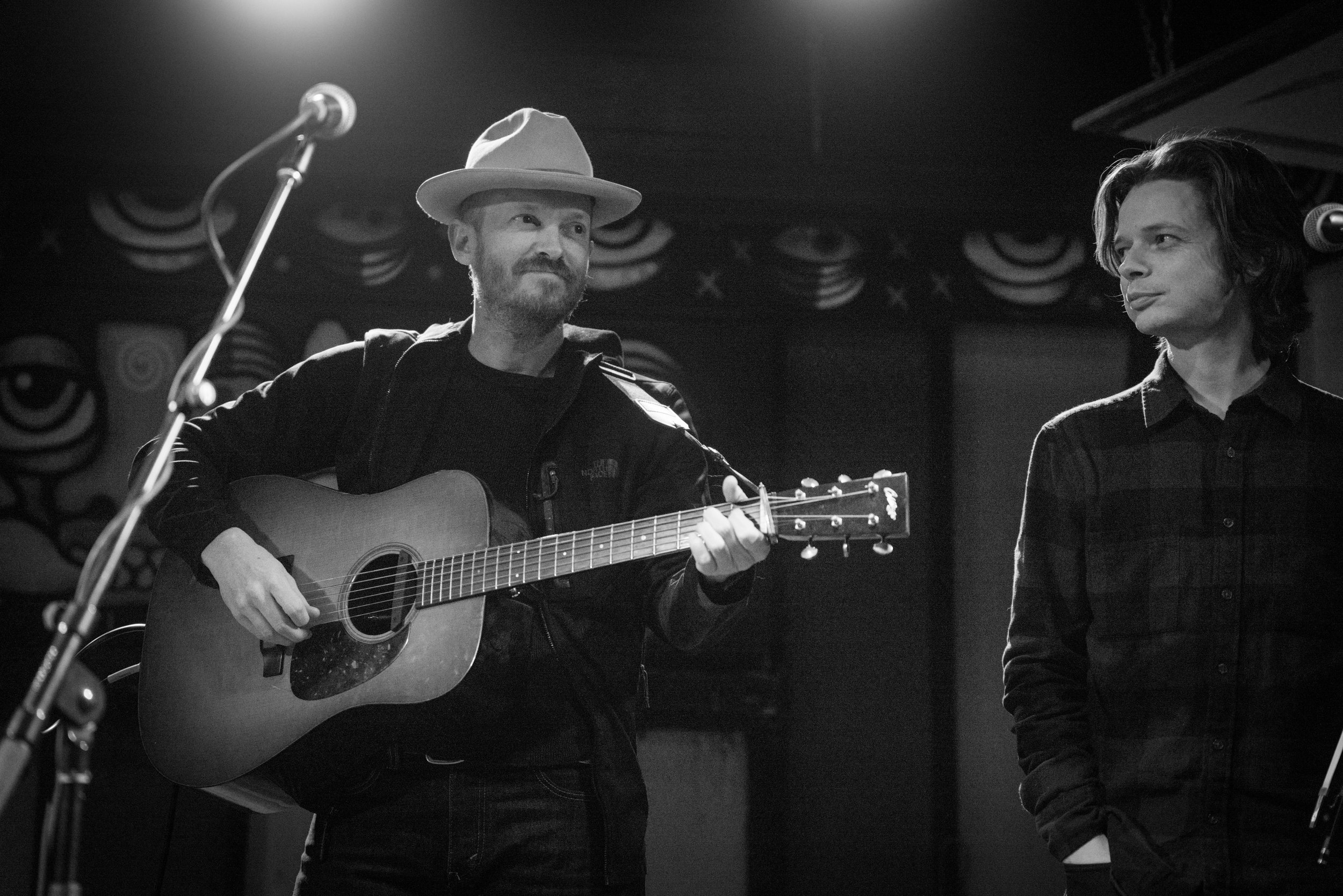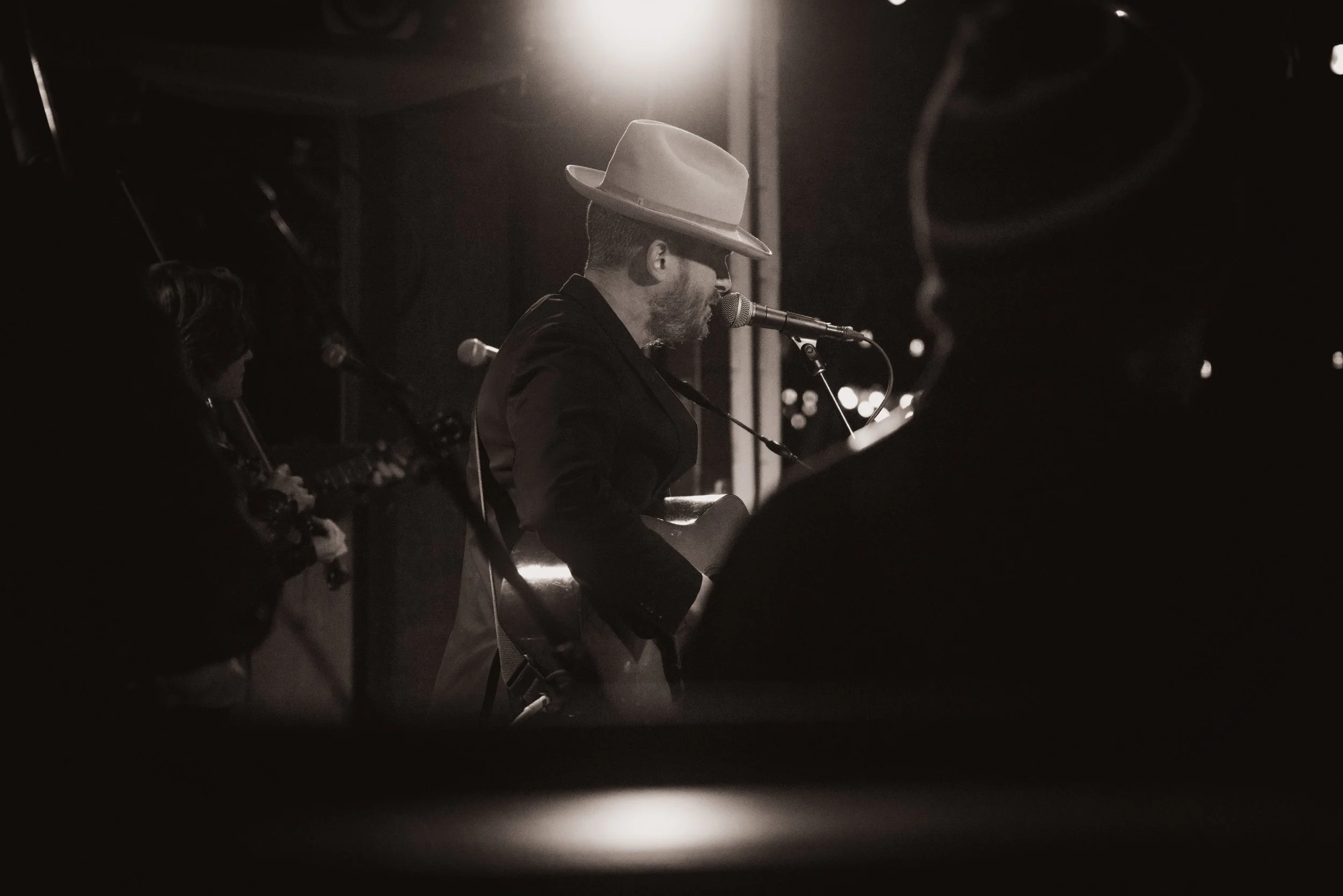James Hyland
Theme albums can be quite ambitious undertakings, but tackling a subject as vast as how the transcontinental railroad changed the American West? That sounds like an epic challenge, one as big as the territory it encompasses. Unless you’re Austin singer-songwriter and guitarist James Hyland.
Hyland, who first made his musical mark as a cofounder and frontman of the South Austin Jug Band, meets that challenge on his new album, simply titled Western. The May 1 release is the culmination of a seven-year odyssey — one whose origins lie, rather surprisingly, with an album about an entirely different American territory: Jason Isbell’s Southeastern. Inspired by that album’s title, Hyland thought about how America’s westward expansion unfolded, and how he could lasso it into a cohesive collection of words and music.
“I wanted to write something between Lin-Manuel Miranda’s Hamilton and Willie Nelson’s Red Headed Stranger, with a touch of the South Park guys’ Book of Mormon and Tom Waits’ Big Time,” Hyland explains. “So I ultimately wrote a play about a musician driving through the night, switching between two satellite radio stations. On one, a DJ is hosting a western-novella-themed show, and on another, the DJ is playing more modern Americana. This album is the music from that play.”
Traversing both territory and time, Western explores a past populated by cattlemen, lawmen, outlaws, rival railroaders, the Chinese laborers they exploited, the Native Americans whose land they grabbed (treaties be damned), and of course, the women those men dreamed of as they conquered the frontier — including the Utah sister-wife who led the fight for women’s suffrage, starting with her home state, where polygamy needed protecting from an influx of outsiders.
Similar characters — some based on friends, some semi-autobiographical — inhabit its present-day stories, though their surroundings, transportation modes and hairstyles are decidedly different. But it’s easy to follow a standard-gauge track from the Civil War vet playing piano in a remote western brothel to the traveling singer-songwriter whose closest friend is his guitar, and trace a route from there to the writer who’s still not sure whether he’s worth a damn, but damn if he’s not grateful for the mailbox money after condescending to write “a Nashville song” (You just need three chords, about five clichés/You’re on your way, to ole Cashville, USA).
In “First West Bound Train,” Hyland sings a verse that neatly encapsulates his concept:
Full steam ahead, across the great divide
The west and the new world, they’re destined to collide
Got my hand on the throttle, got the heat in high gear
Got a front row seat to how we got from there to here.
That throttle becomes a gearshift and the engine runs on gas, but the destination — and restlessness — remains the same in “Dark and Weary World.” You drive on through the night, you're northern California bound, Hyland sings. There's just something in the air keeps you wanting to go there.
Using an approach akin to historical fiction, Hyland found inspiration from actual figures, such as famed cattleman Charles Goodnight (who inspired the Woodrow F. Call character in Lonesome Dove), Texas Ranger John “Coffee” Hays (referenced via his horse, also named Coffee), Lakota warriors Gall and Crazy Horse and Mormon suffragist Emmeline Wells. But real or imagined, his vividly drawn characters pull us into their lives, letting us ride shotgun as they travel on their journeys. Crossing a span of 20 songs — and about 150 years — their tales coalesce into a sweeping Americana document that captures, well, America.
Hyland, who produced and plays acoustic guitars on the album, had impressive traveling companions of his own on this ride: guitarist Johnny Moeller (the Fabulous Thunderbirds), fiddler/mandolinist Warren Hood (BoDeans), drummer Robb Kidd (Golden Dawn Arkestra), pedal steel/dobro player Kim Deschamps (Blue Rodeo) and Willie Nelson’s bassist, Kevin Smith, formed the core band, augmented by guests BettySoo, Chip Dolan, Marvin Dykhuis, Stephanie Marlar, Will Landin, Trevor Smith, JM Stevens and Marshall Hood (Warren’s cousin).
Warren, an original Jug Band member, is also known around Austin as the son of the late, and still much missed, Champ Hood, who cofounded Uncle Walt’s Band. Champ, one of Hyland’s musical idols, is the inspiration for “Ghost,” in which Hyland sings, Something I can’t see has got a hold on me / A ghost is trying to talk through me.
“It’s about playing music for art’s sake, and about being haunted into doing so,” he explains.
Jug Band fans might also recognize the aforementioned “Dark and Weary World,” along with “The Ballad of Eddie Mullet”; both were originally recorded by that band — which, its members loved to point out, never played a note on a jug. Nor were they a bluegrass band, despite winning three consecutive Austin Music Awards for Best Bluegrass Band and being named Best New Band at the 2002 Telluride Bluegrass Festival. “Dark and Weary World” also was heard in the 2009 documentary, Happiness Is, by the late Andrew Shapter. Hyland’s song “Medicine Man,” recorded with his subsequent band, the Joint Chiefs, was used in the 2013 documentary American Drug War 2: Cannabis Destiny.
Not only did he write the album as a play, Hyland says, he approached production that way, too, telling web magazine Glide, “I like to cast the instruments like characters in a play. Each instrument is chosen with intent, as is the groove.”
Speaking of groove, even though the album is solidly Americana, some songs are straight-ahead blues, while others bear strong bluegrass and country-rock leanings. “Don’t Feel Like Cryin’” even heads toward “Dead Flowers” territory, and “Swing it Your Way” totally swings, as if Bob Wills and the Andrews Sisters played a campaign rally. Hyland, who reports the first album he bought was 2 Live Crew’s Banned in the U.S.A., drew on hip-hop influences as well. One can hear that in the rhythm of “It’s a Good Day to Die (Battle of the Greasy Grass),” in which he delivers his lines in a near-rap cadence, practically dueling with Moeller’s electric guitar as the song builds toward its crescendo. And in “You’ve Come to the Right Place,” the percussion stings like a slap as Hyland drops slithery come-ons like a wolf scheming to swallow Little Red Riding Hood. “Top Floor” carries similar hints of bluesy menace.
But according to Hyland, the main connection coupling these songs together like rail cars is that almost all depict characters who are simply struggling — or willing themselves — to survive. And often, the locomotive force pulling them forward — into the wilderness, the darkness, the battle or the bedroom — is love. Empowering us to face the unknown, to charge toward our destinies, it’s the strongest engine there is.







